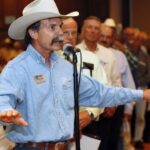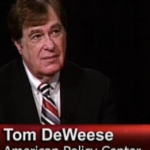Use extreme caution in hiring
By Drovers news source | Tuesday, June 22, 2010
The Animal Agriculture Alliance urges farm managers to be watchful for a number of individuals who have been found responsible for some of the latest undercover activist videos released to the media and public in the past year. The alliance recommends that all producers ensure high standards of animal welfare by following approved industry guidelines. Operators should also review their hiring practices, train employees on proper animal handling according to company policy, and hold all workers accountable for their actions.
The activist tactic of obtaining illicit employment at a farm or processing plant in order to acquire video intended to malign the reputation of farmers and ranchers is becoming increasingly common. While animal abuse in any shape or form is never condoned by the agriculture industry, activists use highly-edited images of violence and neglect to prey on the emotions of the public. It is hard to determine the authenticity of the images. Too often, the activists wait for weeks or even months before turning the video over to the proper authorities. By waiting for the most politically opportune time to ‘go public,’ they allow any alleged abuse to continue.
The following individuals have been connected to a number of recent undercover video campaigns.
 “Jason Smith”
“Jason Smith”
It appears one individual is responsible for undercover videos taken at Quality Egg of New England, Bushway Packing Inc, Maine Contract Farms, Wiles Hog Farm, Hodgins Kennels, C.C. Baird, and at least one other dog breeding facility. It is probable the same individual is responsible for undercover videos taken at Gemperle Farms, Norco Ranch, DeCoster Egg Farms, and Hy-Line’s Spencer Iowa hatchery.
According to credible sources, the person who worked undercover at these facilities was born in Houston, Texas, as Christopher Parrett. Some of the other names given to employers include Jason Smith, John Knoldt, and Chris Paxton. When employed by Maine Contract Farms, the person claimed to be Jason Smith but used a social security card belonging to John Knoldt, originally Christopher Parrett.
The social security card of the individual who worked as Jason Smith identifies his social security number as ending in these last four digits: 0852. His driver’s license is from North Carolina (picture shown at right).
Smith also was found to have led an undercover investigation of a Minnesota dog breeder in 2009.
 “Pete Romoland”
“Pete Romoland”
The Alliance suspects that this same individual is also known as “Pete Romoland,” whose picture appeared in a TIME magazine article accompanying an interview with him on March 6, 2009 (shown below). However, the sunglasses shown in the photos make it difficult to confirm if they are indeed the same person.
In the TIME magazine article, “Pete” indicated that he had legally changed his name twice. “Pete” also indicated that he is a vegan and specifically stated, “…I do not believe that under any circumstances we should raise animals for food.”
In the same interview, “Pete” stated that he operated as an unlicensed investigator and had contracted with the anti-modern farming group Humane Farming Association and the vegan animal rights group Mercy for Animals. He proudly boasted that video footage he was responsible for procuring had been featured in at least two HBO documentaries, including Death on a Factory Farm. In July 2007, video obtained by Smith (who went by Knoldt) was used in a trial against an Ohio hog farm. He said that he had used his real name and a false address when he was hired. Video was obtained using a buttonhole camera.
“James/Jimmy Carlson”
Possibly the same, but without confirmation, another individual was hired by Country View Family Farms. The name provided was Jimmy Carlson, supposedly from Sag Harbor, NY. The individual was in his twenties and had his hair cropped short in a buzz cut. Sources confirmed that Carlson was also responsible for the January 2010 video taken at Willet Dairy in New York for Mercy for Animals.
In a National Public Radio interview that has since been taken offline, an individual took credit for conducting the Hy-Line undercover operation. He stated that he worked for Mercy for Animals. In the radio interview, this individual asked the reporter to call him “James.” He said that since he often had to use his real social security card with his picture ID, he couldn’t reveal his real name when giving interviews.
In all cases, the undercover videos were provided weeks or months after the individuals had left employment, and the videos were initially provided to either the media or the USDA — not directly to the businesses involved.
In most cases, employers realized — after the fact — who the former undercover employee had been. They also recognized — after the fact — many behaviors or actions demonstrated by the undercover employee that allowed them to have access to the animals and to produce videos — whether of real or staged animal mistreatment.
Some of the behaviors included:
- Befriending or mingling with upper management – asking questions about operations including security matters or time schedules.
- Volunteering for jobs before or after normal business hours.
- Volunteering for jobs that are less desirable, but would provide them access to the animals, often before or after normal business hours.
- Seeking employment in jobs below their skill or education level; demonstrating previous jobs or experiences out of character for the job they were seeking.
- Seeking employment with no pay — so they can “learn more about the business before committing to that field” either with regard to their education or possibly before starting their own business.
- Using an out-of-state driver’s license.
The alliance urges producers to use caution when hiring new employees. Operators should keep these photos on hand and follow the recommendations in the Alliance’s Farm & Facility Security Recommendations Report, which is available on the members section of the Alliance’s website. Operators must make certain that they hire people who are there for the right reasons- to help produce a safe and nutritious food supply.
The agriculture industry must be wary – activists have shown that they will work every angle in their quest to put all farmers, ranchers, and meat processors out of business. The first step for every farm operator is to ensure that top quality animal care is provided at all times. It is also critical that those in the industry take extra security precautions to prevent getting targeted by animal rights groups looking for video to aid in their fundraising efforts and political campaigns.



